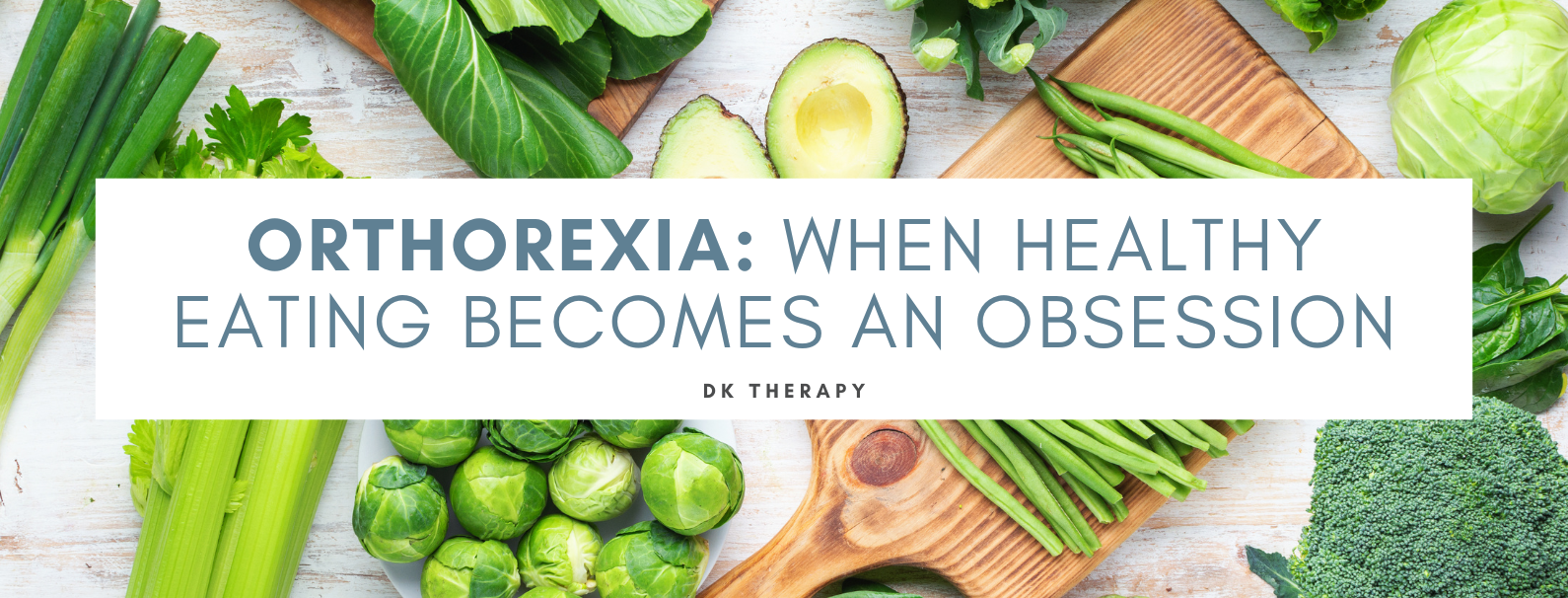
Wellness culture tends to be pretty pervasive in today’s health-conscious era, with healthy eating being a key element of modern life. Though following healthy dietary habits is a must for maintaining one’s health, there’s a difference between mindful eating and obsession.
 What is Orthorexia?
What is Orthorexia?
Orthorexia is a term used to describe an obsessive focus on healthy eating. Unlike other eating disorders like anorexia or bulimia, orthorexia is less about body image and more about a fixation on food quality. People with orthorexia often cut entire food groups they perceive as unhealthy from their diet, such as processed foods, sugar, or dairy. Over time, this obsession can interfere with both daily life and general well-being.
Signs and Symptoms
Recognizing orthorexia can be tough because it often begins with the best of intentions to improve one’s health. However, the following signs may indicate when healthy eating has crossed into obsessive territory:
- Rigid Food Rules: Strict avoidance of foods deemed unhealthy, even when this leads to nutrient deficiencies.
- Preoccupation with Food Choices: Spending excessive time planning, researching, or preparing meals to meet self-imposed food standards.
- Guilt or Anxiety Around Eating: Feeling distressed after consuming foods outside of the “allowed” list.
- Social Isolation: Avoiding social events or dining out due to concerns about food quality.
- Physical Consequences: Malnutrition or weight loss due to highly restrictive eating habits.
The Impact of Orthorexia
The pursuit of health is admirable, but orthorexia can have serious physical, emotional, and social consequences. Nutritional deficiencies are common in individuals with highly restrictive diets. This may accompany or exacerbate the mental toll, which includes heightened anxiety, stress, and a sense of failure around food. Socially, orthorexia strains relationships as individuals focus on their eating rules over shared experiences.
Root Causes
The causes of orthorexia are multifaceted. Cultural factors play a significant role, such as familial preoccupation with clean eating. Social media and its endless stream of perfect-looking meals and health advice can intensify the issue. In addition, personality traits like perfectionism or a history of obsessive-compulsive tendencies can also contribute to the development of orthorexia.
How to Address Orthorexia
Recovering from orthorexia requires a shift in mindset and, often, professional help. Here are steps to help overcome this condition:
- Seek Professional Help: Consulting a registered dietitian or therapist who has experience in eating disorders is a must. They can help reframe thoughts around food and establish a balanced approach to eating.
- Challenge Food Rules: Gradually introducing “forbidden” foods and understanding their role in a healthy diet can help with food-based anxiety.
- Practice Mindful Eating: Focusing on the sensory experience of eating, without judgment, can help restore one’s relationship with food.
- Limit Exposure to Triggering Content: Avoiding content that promotes restrictive eating can ease the pressure to meet unrealistic standards.
- Build a Support Network: Sharing experiences with friends or joining a support group can reduce feelings of isolation.
Maintaining a Healthy Balance
Healthy eating should enhance life, not slow it to a crawl. A healthy approach to eating includes flexibility, enjoyment, and a focus on overall well-being. Listen to your body, pay attention to hunger cues, and embrace a variety of foods to foster a sustainable relationship with eating.
When to Seek Help for Orthorexia
If you or someone you know is experiencing significant disruptions in life due to highly restrictive eating, getting help is critical. Recovery is possible, and with the right supportive services, individuals with orthorexia can restore a healthy perspective on food.
By understanding and addressing orthorexia and how it affects those struggling with it, we can promote a healthier culture that prioritizes overall well-being over perfection.
If you’re struggling with orthorexia and you’d like to get in touch with a therapist, please reach out to DK Therapy and schedule an appointment with our office.




